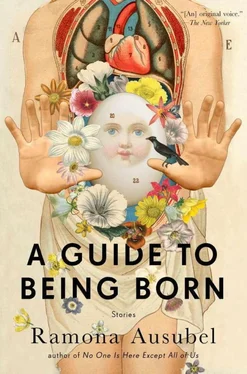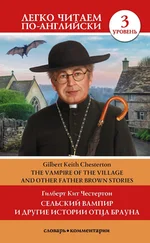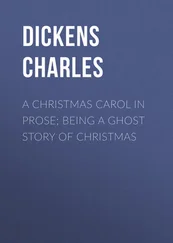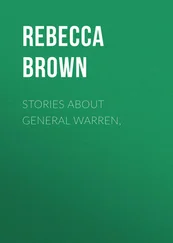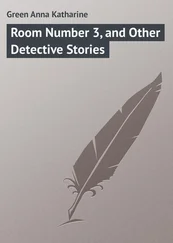In the back, the coffee ran out. The cookies were eaten, although a few were secreted away in the corduroy pockets of professors who thought ahead to future hunger. They fingered them in there, little disks of survival. In the back of the room was a cluster of historians and poets talking about what a nice round number one hundred was. Faustus stood behind them and listened.
“You know,” said the same undergraduate who had started things off, “Wilt Chamberlain claimed to have had a hundred illegitimate children.” In this moment that was beautiful to the historians and to the poets.
“They should get them all together for a game sometime. They could sing the national anthem,” someone offered.
“They could file into the basketball court in a long line—just think how tall they would be—all of them wearing their father’s jersey.”
“And the announcer’s voice would echo through the building: ‘Ladies and gentlemen, boys and girls, please rise for the singing of the national anthem by The Illegitimate Children of Wilt Chaimberlain.’”
“They could sing it in a round,” someone else added.
“And all their mothers, who number almost as many, could come out and harmonize.”
“That would be an historical event,” the historians agreed.
“That would be a poetic event,” the poets added.
Some of the members of the French Department touched each other’s black tights, both parties pretending not to be awake.
Claire Baker approached Faustus and took him by the arm. “If you would please come over here, please, I promise we won’t try to talk to you.” She sat him down in a circle of German Romanticists. An older woman, long established in the department, put the bottle of water she was holding down in the center of the circle. “Spin,” she said to Faustus. “As long as we’re here.”
“Is this what I think it is?” Faustus asked.
“We’re all waiting for something great to happen in here,” the woman answered. Faustus spun and the mouth of the bottle pointed directly back at him.
“Spin again,” Professor Baker said. On his second spin, the bottle pointed to a woman whose hair, skin and dress were nearly the same shade of brownish pink.
“I think you are trying to do me a favor,” he said to the circle. The woman looked up at him through her square bangs and smiled, rocking forward onto her hands and knees. He turned his face and offered his cheek to her. She put her lips to his skin and held them there. They were warm and full of questions.
• • •
PEOPLE HAD COME to the funeral heavy with flowers. Faustus stood in the circle with the others—people from the department, people from the neighborhood, cousins. His and Petra’s parents were all dead or too senile to travel, and the two of them had no children. Faustus wished in that moment for someone who felt the loss more than he. He wished for a daughter, eyelids swollen from crying, whom he could put his arm around and comfort, whom he could drive home, where they would sit in the dark of the living room and listen carefully to the absence of their wife and mother. Just hear the house without her.
Faustus had read a poem by Ezra Pound over the hole in the ground and each of the gathered people stooped down and took a handful of dirt to throw on the lowered box. The earth accepted Petra in and the living made their way inside, where they stood together reducing the hill of a vegetable platter and talking in voices much quieter than necessary. The guests stayed long enough to prove that they were willing to give up their Sunday afternoon even though it was a beautiful day, even though it was getting close to summer. If any of them had plans for tennis later or for barbecues, they did not let it show. Faustus imagined them that evening in their various backyards refusing plates of grilled chicken, saying, “I wish I hadn’t eaten so much at that funeral .”
Like the rest of the guests, Faustus finally went home. He let himself into the house and sat down with his back against the door, where the tiles were cool on his legs and he tried to hear, as he had earlier imagined, every single thing that his wife was not doing in their home on this Sunday night. He could hardly keep track of it all, she was so busy being absent. She was not pouring water into a glass or a pitcher. She was not kicking his shoes out of the hall. She was not switching the laundry into the dryer. She was not opening the screen door and going outside barefoot and calling for him to come look at the sunset. She was not putting lotion on her elbows or flattening the newspaper or picking up the ringing telephone, which would go on calling out the absence of Petra in nine-ring sequences dozens of times every day.
• • •
EVENTUALLY, most of the cookie-savers ate their cookies. They sneaked off into dark corners or pretended to sneeze, quickly stuffing the crunchy morsel into their mouths. They did not want to be spotted and have to share. One woman, an administrator in the Composition Department who wanted her saved cookie to last a long time, held it flat against her palm and licked it over and over like a popsicle.
An African filmologist approached the podium. He wore denim shorts and white socks pulled all the way up to his knees and a sport coat. He had three watches on, all of which told him that it was late and he was tired. He said just a few words, then began that practiced acceptance speech for whichever prize he might someday be awarded. “I want to thank you for this incredible honor. When I was a boy, I sneaked into the cinema one afternoon and, in a way, I have never left that dark room full of magic.” The professors let his speech drift in and around them. To hear him thank his mother the way he did, and the teachers of his youth, felt as though they were all thanking their mothers and the teachers of their youth. He leaned his forehead on the wooden surface of the podium and fell asleep like that, his arms up around his head, the dream of acknowledgment hovering above. The microphone was on, and the in and out of his breathing was amplified through the whole room.
“Tell me if something happens,” the professors said to one another, and everyone closed their eyes. Some lay on the shoulders of others, drooling onto the tweed or houndstooth. Some slept in piles on the floor like puppies. Some found places alone. A Religious Studies lecturer sucked her thumb. Someone turned off the lights, and since there were no windows, the auditorium was completely dark.
Faustus and the rest of the spin-the-bottlers lay down in a circle like toppled dominoes, each head finding rest on a foreign set of legs. Faustus’s right ear was suctioned to the monochromatic woman’s bare calf. The calf did not make noises the way a stomach might. It must have been busy in there, distributing blood to each sinew of muscle, but it did so in silence.
He could not see it, but in the dark around him, some players held hands, sweaty and excited. Faustus looked into the dark and tried to make a list of reasons for existing. Kissing was on there, and so were hollandaise sauce and racquetball.
Suddenly he felt a hand on his face, its digits and palm covering most of his features. It was not a gentle touch, exactly. He felt he was the ocean floor and this was an exploratory machine out to map his exact topography. He tried to breathe consistently in order not to throw off the findings. The curious hand stuck three of its fingers into his mouth, and he sucked them like a baby. Faustus was desperately close to believing that the fingertips belonged to Petra, that if he followed them to the hand, wrist and arm, he would find his wife’s body there. All her inner workings clean and polished. He did not move the hand for a long time. He let it sit, heavy on his chin, while all around him, around all of them, the amplified breathing rattled out from the speakers.
Читать дальше
